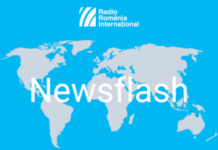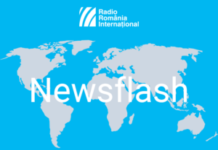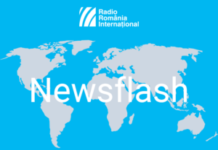The Republic of Moldova is high on the EU agenda.
For a long time included in specialized rankings as the poorest European state, the Republic of Moldova (ex-Soviet, predominantly Romanian-speaking) is dependent on the financial assistance of Western partners. Things got worse after, on February 24, 2022, Russian troops invaded Ukraine. Moldova had to manage a huge flow of Ukrainian refugees, to find solutions to the economic issues caused by the war in the neighboring country and to resist the assiduous attempts of Moscow, which has never accepted the idea that there is a pro-Western regime in Chisinau, to destabilize the political situation in that country.
The state of emergency in Moldova has actually been extended by 60 days, starting June 4. The decision was motivated by the risks and threats generated by the war unleashed by the Russian Federation in Ukraine. According to the authorities, the republic is exposed to asymmetric threats and a wide spectrum of manifestations of hybrid warfare. The risk of new cyber attacks on public institutions and critical national infrastructure was also raised. The Republic, therefore, still needs the legal mechanisms related to the state of emergency, in order to manage any unpredictable developments.
Against this distressing background, the Council of the European Union decided, on Tuesday, to practically double the macro-financial aid earmarked for the Republic of Moldova, from 150 to 295 million euros. Last month, the Romanian MEP Siegfried Mureșan (PPE-PNL), the head of the European Parliament Delegation to the EU – Moldova Association Committee stated: „we offer the Republic of Moldova the financial support it needs to ensure that, throughout this year, the Government has sufficient funds available to support people and ensure economic stability”. He added that „the Republic of Moldova is a candidate state for EU accession and we must help it overcome the challenges it faces and continue its European integration”.
Also on Tuesday, the member states of the European Union adopted sanctions against seven people, accused, in particular, of being connected with „Russia’s efforts to destabilize” the Republic of Moldova. Their assets will be frozen inside the Union, where their access will also be banned. According to Brussels, the seven are „politicians and businesspeople of Moldovan or Russian nationality who engaged in destabilizing activities”, by planning violent demonstrations or by supporting the Russian Federal Security Service (FSB).
The decisions adopted by the community leaders preface the Thursday meeting in the Republic of Moldova of leaders from almost 50 countries, for the second summit of the European Political Community (EPC), whose assumed values are democracy, respect for human rights and the rule of law .
(Bogdan Matei, Radio Romania International)









